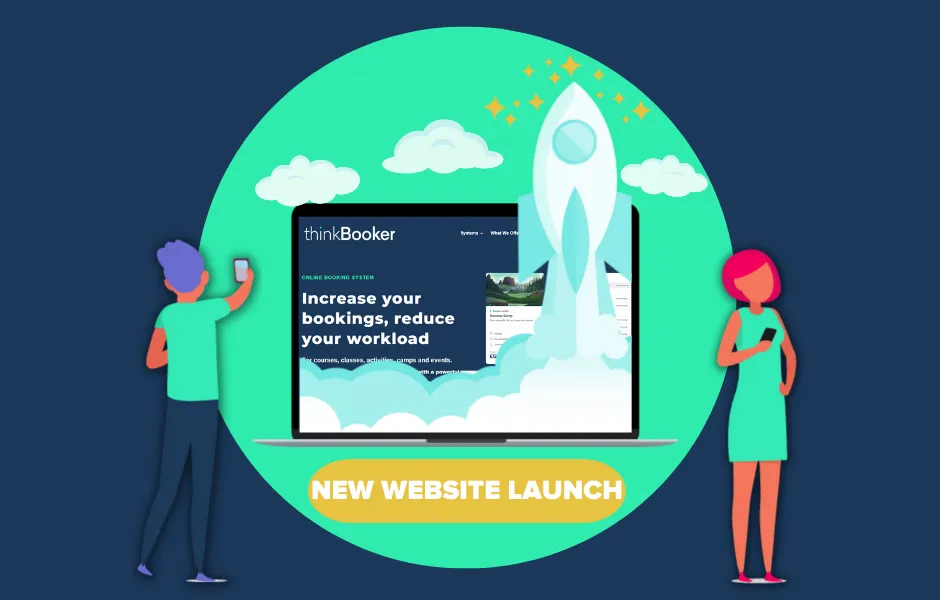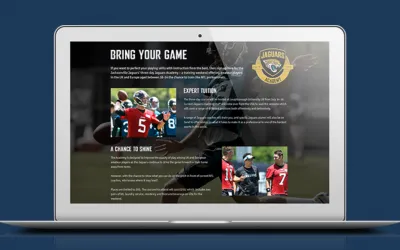Allowing your customers to have their own user accounts to manage their bookings and transaction histories should be a fundamental consideration when implementing a booking system into your business.
Get this part of your business process right and it can deliver long-term gains operationally and commercially, across some of the key drivers to success in your business, namely:
- Efficiency
- Customer experience
- Revenue
- Loyalty
User Accounts Drive Efficiency For Customer and Staff
Providing a set of self-service features for your users will improve the efficiency and save time for customers and staff alike.
Think of the different scenarios that arise ahead of a booking:
- Customer’s who have misplaced booking info and want to check details
- Important pre-event information needed from the customer (e.g. dietary requirements)
- A customer who needs to reschedule their booking
They may be small tasks, but all come at a cost to time. From an admin perspective, it means more tasks, more checks, more emails that need to be taken care of. For the customer, if they’re looking to make a change, add some info or check on details, is it not better they access it without delay?
By allowing a customer to take some ownership of their own booking means a swifter resolution for the customer while eliminating additional work for your admin or booking management team.
Convenience and Speed: Essential for Delivering Amazing Customer Experience
A user account provides a facility for faster and more convenient service for your clients; things that 70% of customers believe are of top priority when it comes to customer experience.
And this is important.
If you haven’t yet caught onto the fact that delivery of exceptional customer experience is vital for long-term success and sustainability, then now is the time. It’s a major battleground across all industries with winning CX initiatives helping businesses see substantial increases in revenue and client retention.
With a fully fleshed-out user account, your customers can take ownership over their bookings, their data and their general relationship with you. It provides fast and convenient access at a time and on a device of their choosing.
Of course, there are dangers and pitfalls here that you also have to be aware of.
A user account is only as good as its accessibility.
Meaning, if your customers have problems getting into it or using it on certain devices, especially mobile, then it can cause frustrations that completely undermine the CX and can damage your relationship with your customers.
The reality is, these days, more people access online services via mobile than via any other route. And poor mobile experiences are common and can be costly.
If you’re providing the speed and convenience of a user account to your customers, then you absolutely HAVE to ensure you’ve considered the mobile experience.
Removing Barriers for Faster Bookings and More Revenue
Remember what we said about the attraction of convenience?
Too many booking systems put up barriers to an actual sale that can impact booking numbers and increase the level of abandonments.
Compulsory sign-ups, forcing users to sign-up or login before they complete a transaction, for instance.
Yes, we want to create a user account for our customers, for all the reasons we highlight here, but why make that same customer jump through hoops at the outset? It’s just giving them a reason not to book.
Would it not make sense therefore to automatically create an account as part of the booking journey, thus getting them to the point of sale with the least friction?
Similarly, you may need to gather additional information on attendees ahead of the booking (emergency contacts, dietary needs, consent forms or similar). If the booker hasn’t got all this to hand there and then, the chance of abandonment increases.
But if they could secure their booking first, and then have access to update accordingly in their account area, when suitable to them, you’re increasing the likelihood of catching the sale…and providing that convenience that makes such a difference to your CX.
Developing Long-Term Customer Loyalty
The advantages gained by improved efficiency, convenience and customer experience from an effective user account in your booking system is likely to have a positive impact on your overall revenue streams.
A good experience that simplifies things will generally lead to that person purchasing again in the future.
Positive engagement between client and company is the surest route to ongoing loyalty and business retention. And while that undoubtedly means ensuring good human-to-human interaction, the addition of tools that make life a little easier most certainly adds important value into the mix.
Customer loyalty is the bedrock of sustainable growth for any organisation. Providing the services that both encourages the customer to stay with you, and removes incentives to try other suppliers is key to this.
Which is why it’s important that not only do you offer a value-adding feature such as a user account, but that you don’t subsequently neglect it. Adding new features, exposing new self-service options and tools that consistently enhances the experience demonstrates that you’re constantly thinking about their happiness.
That you value their custom, are grateful for their loyalty and are willing to continually improve your offering to them.
At thinkBooker, we specialise in online booking systems for training courses, classes, activities and events – optimised for efficiency, growth and ongoing client satisfaction.
Browse the site to learn more about course booking systems, sports booking systems, event booking systems and more, or get in touch directly to find out how we can help you.
Images from Canva Pro.



